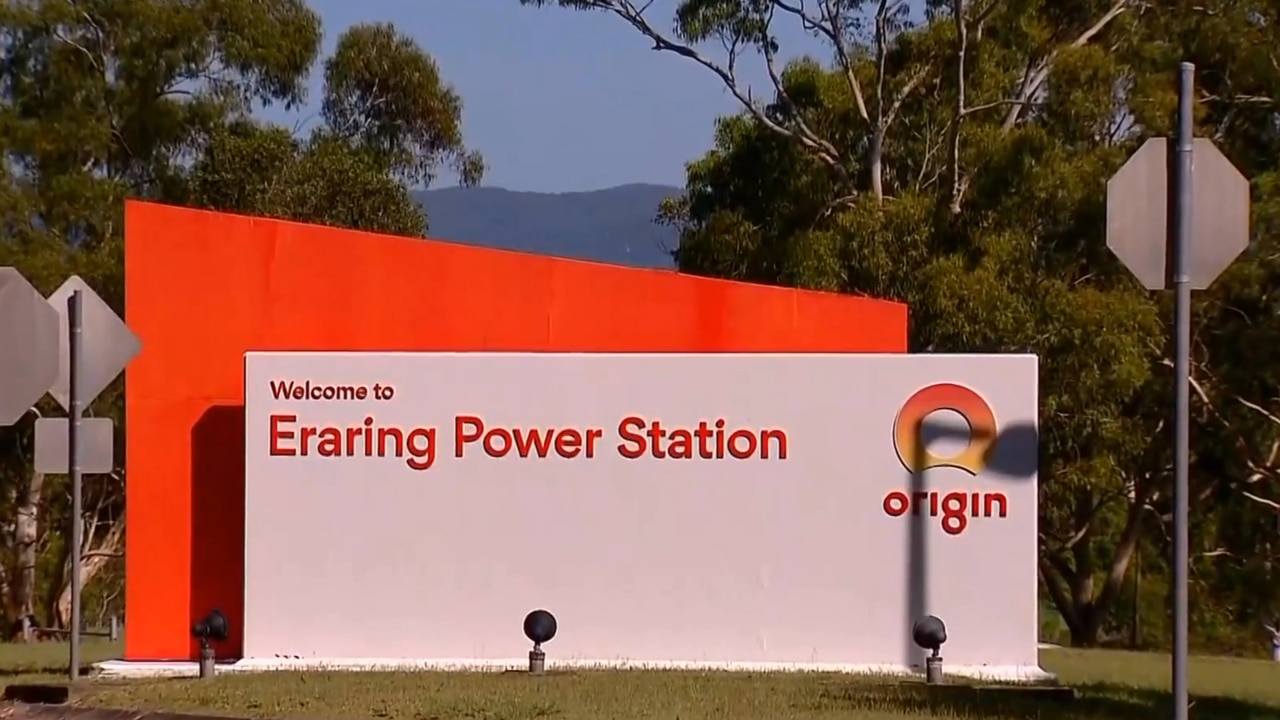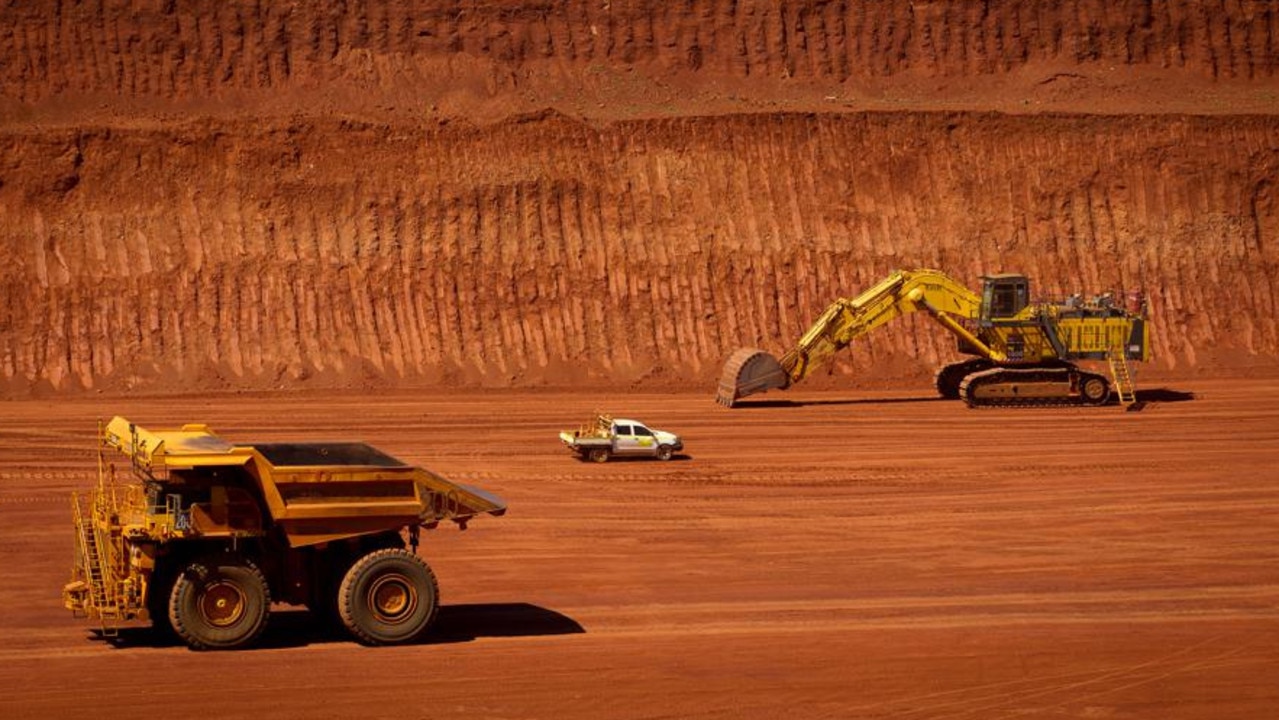AustralianSuper rejected, then sought part of Origin Energy bid
In a fresh twist to one of the nation’s biggest corporate deals, it has emerged AustralianSuper made a late move to join the consortium bidding for Origin Energy.

Business
Don't miss out on the headlines from Business. Followed categories will be added to My News.
Origin Energy’s biggest shareholder, AustralianSuper, rejected the opportunity to join Brookfield and EIG in their $18.7bn takeover of the power giant, before making a late move to explore joining the consortium, a fresh twist in one of the nation’s biggest corporate deals.
The revelations hint at AustralianSuper’s plan for Origin Energy and offer insight into tensions between the investor and consortium, with the superannuation giant vowing last week to reject Brookfield and EIG’s revised near-$20bn deal for the nation’s largest electricity and gas retailer.
AustralianSuper said on Thursday it would vote against Brookfield and EIG’s new $9.53-a-share deal, with what the consortium described as its “best and final offer” worth $19.9bn, insisting the proposal undervalued Origin.
The move has stoked speculation as to the superannuation fund’s end game.
Some market sources had speculated AustralianSuper could be angling for a higher offer. But The Australian understands the superannuation giant was as recently as August mulling joining Brookfield and EIG in the bid for Origin – indicating it intends to be a long-term owner of the retailer in some guise.
AustralianSuper explored the prospect of joining the consortium around July, not long after it said it intended to invest $10bn in Australia’s energy transition, sources said.
AustralianSuper had yet to undertake due diligence on the bid, and there was no certainty a deal could have eventuated. The superannuation company is understood to have had concerns about how the deal was structured, while the partners on the other side deemed it too late to amend the structure.
The desire for long-term ownership of Origin is distinct from AustralianSuper’s initial response to the bid for the energy giant.


AustralianSuper initially rejected a proposal from Brookfield and EIG to join the consortium in November last year, when the deal for Origin was announced. AustralianSuper is believed to have determined it did not have sufficient time to undertake due diligence, a stance disputed by market sources.
A spokeswoman for Brookfield and representatives for EIG declined to comment.
A spokesman for AustralianSuper also declined to comment.
The evolution of AustralianSuper’s interest in Origin will be seized on the market for indications of a deal proceeding as traders mull and position accordingly for the future of Origin.
The immediate fate of Origin is in the balance. A shareholder vote will be held on November 23, with sources indicating Brookfield and EIG could still win out.
Brookfield and EIG require support of 75 per cent of Origin’s shareholders.
“There is still a path but it may come down to the shareholder turnout,” one source said. “If the retail shareholders turn out and the consortium can sway some institutional support then they could get up. It was dead in the water before, now it is a maybe.”
If the deal doesn’t materialise, attention will turn swiftly to AustralianSuper.
The super giant has several potential avenues to keep its holding in Origin. As Origin’s largest shareholder (owning almost 14 per cent, but looking last week to increase its position), if it succeeds in scuppering the deal it will keep its ownership position in Origin.
However, Brookfield and EIG have a plan B. If their bid fails at the shareholder vote, they could return with an off-market bid, though AustralianSuper could remain a shareholder.
“Brookfield and EIG can go off-market, but we don’t have to sell,” said one source familiar with the thinking of AustralianSuper.
Other sources disputed that AustralianSuper would be happy with a so-called off-market bid, suggesting the superannuation fund is instead positioning itself in the expectation that Brookfield and EIG deem the so-called plan B option too difficult.
“Fifteen per cent ownership doesn’t do much. I can only assume they kill it and try to get the consortium back to the table,” one source said.
Should the duo return with an off-market bid, Brookfield or EIG would have to purchase Origin and then seek to sell the division of the business to its partner.
Brookfield and EIG have won favour with Australian officials for their bid, as they promise to invest $20bn-$30bn to accelerate the nation’s transition away from fossil fuels.
Brookfield has said it will develop 14GW of renewable energy generation assets, higher than the 5GW that Origin has currently proposed.
The promise is attractive for Australia as it struggles to deliver its ambitious plan of having renewable sources generate more than 80 per cent of the nation’s electricity by 2030.
Brookfield’s capacity to accelerate generation investment was a key reason the Australian Consumer and Competition Commission approved the consortium’s bid, despite admitting it had some antitrust concerns about the deal.
More Coverage
Originally published as AustralianSuper rejected, then sought part of Origin Energy bid





